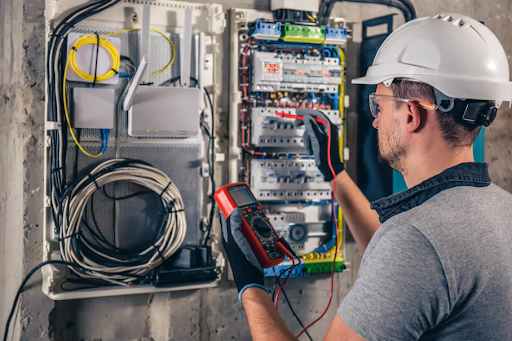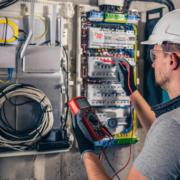
DIY Electrical Repairs: When to Call a Professional Electrician
Electricity is an essential component of modern life, powering our homes and workplaces. While DIY projects can be fulfilling and cost-effective, electrical repairs pose unique risks that often necessitate the expertise of a professional electrician. Understanding when to tackle an electrical issue yourself and when to call for professional help can prevent accidents, ensure safety, and protect your property.
The Temptation of DIY Electrical Repairs
In today’s age of online tutorials and easy access to tools, many homeowners are tempted to handle electrical repairs themselves. Simple tasks such as changing a light fixture or replacing a socket cover can be relatively straightforward for someone with basic knowledge and skills. However, it’s crucial to recognize the limitations of DIY projects when it comes to electrical systems.
Knowing Your Limits
Electrical systems are complex and potentially hazardous. Even seemingly minor tasks can lead to serious consequences if not performed correctly. Issues such as faulty wiring, overloaded circuits, or improper installations can result in electrical fires, shocks, or damage to appliances. Therefore, it’s essential to assess your knowledge, experience, and comfort level before attempting any electrical repair.
Signs You Need a Professional Electrician
- Tripping Circuit Breakers: If your circuit breakers frequently trip or fuses blow, it could indicate an underlying problem such as overloaded circuits or faulty wiring. A professional electrician can assess the situation, identify the cause, and make necessary repairs to ensure safety.
- Flickering Lights: While occasional flickering may not be alarming, persistent flickering or dimming lights could indicate issues with the electrical system. This could range from loose connections to problems within the circuitry. A qualified electrician can diagnose and fix these issues efficiently.
- Electrical Outlets and Switches: If outlets or switches feel warm to the touch, emit a burning smell, or show signs of discoloration, it’s a clear indication of potential trouble. These symptoms could signal faulty wiring, which requires immediate attention from a professional electrician to prevent hazards like electrical fires.
- Electrical Shocks: Experiencing a mild shock when touching appliances or switches indicates a grounding issue or faulty wiring. Such situations should not be ignored, as they pose significant safety risks. Contacting an electrician ensures the problem is addressed properly and safely.
- Old or Outdated Wiring: Homes with outdated electrical systems or knob-and-tube wiring pose inherent risks due to their age and design. Upgrading these systems requires specialized knowledge and should be handled by a licensed electrician to comply with safety codes and regulations.
DIY vs. Professional: Making the Right Choice
While minor electrical repairs can be tempting to tackle on your own, it’s essential to weigh the risks and benefits. DIY enthusiasts should limit themselves to tasks they fully understand and have the skill to execute safely. For more complex issues or anything beyond your comfort zone, consulting a professional electrician is the wisest decision.
Benefits of Hiring a Professional Electrician
- Safety First: Professional electricians are trained to handle electrical systems safely. They possess the knowledge, tools, and experience necessary to mitigate risks and ensure compliance with safety standards.
- Expertise and Efficiency: Electricians undergo rigorous training and stay updated with industry standards and regulations. They can diagnose problems accurately and provide efficient solutions, saving time and minimizing disruption.
- Long-Term Cost Savings: While DIY repairs might seem cost-effective initially, improper fixes can lead to more extensive damage or safety hazards. Professional electricians provide lasting solutions that reduce the risk of future problems, potentially saving you money in the long run.
- Legal Compliance: Electrical work often requires adherence to local building codes and regulations. Professional electricians are familiar with these requirements and ensure that all work meets legal standards, avoiding fines or complications during inspections.
Conclusion
In conclusion, while DIY projects can be rewarding, electrical repairs are best left to professional electricians in many situations. Knowing when to call for expert help can safeguard your home, family, and property from potential hazards associated with electrical issues. By prioritizing safety and expertise, homeowners can ensure their electrical systems remain reliable and secure for years to come. When in doubt, trust the skills and knowledge of a qualified electrician to handle your electrical repair needs effectively and safely.





